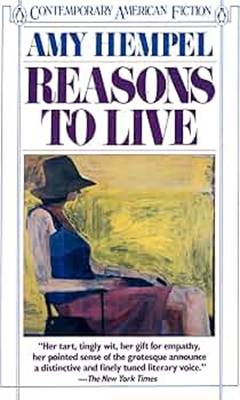Tropic of Cancer
Henry Miller was a bohemian writer who intended to send shock waves through the English-speaking world. That might explain why his language is sometimes derogatory toward women, the elderly, the highly normative, and many others he encounters. It seems he's actually trying to alienate. At one point, he laughs at the death of a colleague. Another time, he's disturbed by the thought of a baby squirming in a woman's belly.
But he's up to something in his book that isn't readily apparent. He presents a Henry Miller who is far worse than the actual man. In life, for instance, he had a thousand friends, men and women. Once, when he was hungry and poor, he asked several friends if he could eat at their houses once a week. They all agreed. But he never would have received such hospitality if he treated men and women like that.
While writing the book at forty, he included feelings and attitudes that most other writers left out of their books, and challenged the niceties and capitulations that many readers and publishers expected.
His hero Rimbaud encouraged authors to take up a "scummy" appearance and attitude to fight the antiseptic falseness of middle-class morality. Celine, another influence, told the truth in a thousand forbidden ways. Miller writes with these authors at his back.
Baudelaire, Gide, and, later, Genet were also part of this literary school of social combat. This describes part of their work, at any rate. They went out of their way to challenge norms, creating rebellious and sometimes low-life protagonists to strike blows against pious gatekeepers. Genet's glorified young gay criminals and prostitutes were indeed shocking, though he was beloved by literary authors.
For the most part, the French understand that exploration of taboo subjects and "crude" protagonists was part of their method and forgive them, or love them all the more.
Many American readers, on the other hand, who often fail to see the French influences in "Tropic," encounter a book that is inexplicably upsetting, as if it's a document without a context, history, or literary milieu.
Everyone knows that Henry Miller was American, but few know that his books are culturally French. That said, he can't escape his American side that pops up here and there.
Past the rude surface, the book is more inspiring and life-affirming than one might expect. On its first page, the protagonist states, “I have no money, no resources, no hopes. I am the happiest man alive.” One finds similar Whitmanesque pronouncements throughout.
Tropic of Cancer is, in part, an experiment in contradictions, stuffing the pages full of all that is terrible and good about this fictional Henry Miller. He plays a role in the book--the vagabond artist, the womanizer, the streetwise cynic. But here and there in these chapters we find a gentler man, and he was vastly more gentle in life.
Anais Nin recorded the great respect he paid to their friendship over years in her journals. Also, she loved "Tropic."
"Here is a book which, if such a thing were possible, might restore our appetite for the fundamental realities. The predominant note will seem one of bitterness, and bitterness there is, to the full. But there is also a wild extravagance, a mad gaiety, a verve, a gusto, at times almost a delirium. A continual oscillation between extremes . . ."
Henry Miller was a lifelong iconoclast--he wasn't making it up for his books. But years ago, I believed he was a creep who tried too hard to be bohemian. After watching a few of his interviews, I got a sense of this kind and curious writer who was so beloved by those who knew him. After that, I read him in a different light.
Greg Hacks Another Publisher
July 14, 2025. Greg hacked Lawrence Knorr at Sunbury, who had accepted "The Lord's Hacker," and they released me from my contract after he was hacked. It's true I had complained that my editor was rewriting my characters, but I doubt it was the first time an author had complained.
Publisher Lawrence Knorr accepted "The Lord's Hacker" in September 2024. A couple of months later, he told me on the phone that the Christian leader's character was interesting. I asked him if the hacking moments seemed too fantastic, and he told me he believed they could be done.
Five months after that, he released me from my contract. He said that I had complained too much about my editor's rewriting my characters and the staff had lost their generosity toward me. They insisted they were only trying to "help" my book.
Lawrence included these lines in the email that he said was a precursor to the termination of contract: "The antagonist, StJohn, is not believable . . . Additionally, many of the hacks he performs would require an incredibly high level of technical knowledge and skill that seem very out of character."
He obviously arrived at an about face, and I believe he had Greg's help in that. Also, a publisher writing a negative review about a character in an email that promised a termination letter, seven months after the book's acceptance, seems unaccountably strange--especially since the publisher had read the book before and claimed to like that character.
I believe Greg hacked Lawrence, just as he has hacked so many other publishers, and so the latter was forced to adjust his feelings and attitudes about that character. He must've figured Greg was reviewing our emails, and he wanted Greg to leave him alone.
The one commonality hacked people share is that they say very strange things in their rubber-legged, shaky-fingered panic.
He has some kind words, but since he told me he'd read the book before, the suggestion that this was his first shot at it was disingenuous--seven months after he accepted my book.











































